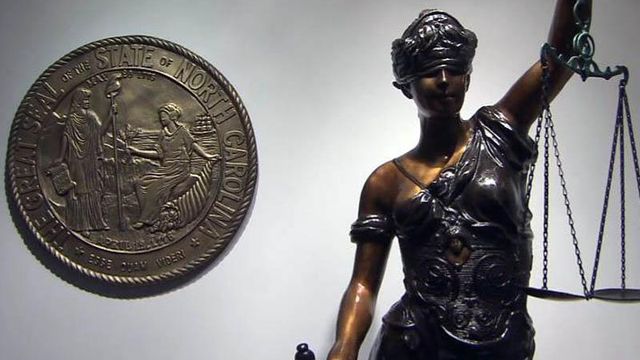Exonerated NC inmates speak out against proposed law
Five former North Carolina prison inmates who served a combined 60 years in prison for crimes they did not commit want state lawmakers to keep in place protections for those wrongly accused.
Posted — UpdatedExisting law requires prosecutors to turn over all files on a criminal case to defense attorneys during the discovery phase of a case. Under the proposed legislation, prosecutors would have to turn over only their files.
Defense attorneys said that would mean they wouldn't have access to police and medical evidence not included in a prosecutor's files, which they said could make the difference between a conviction and an acquittal.
"We are really angry and disappointed that this is even being considered," said Mark Rabil, co-director of the Innocence and Justice Clinic at Wake Forest University. "We just don't want history to repeat itself."
Gregory Taylor, who was freed last year after 17 years in prison for murder, and Darryl Hunt, who was exonerated in 2004 of rape and murder charges, were among those at a Monday news conference to urge that lawmakers reject the bill.
“This bill would reverse years of progress in protecting the rights of the accused to a fair trial,” said Hunt, who spent 18 years in prison. “Have they forgotten about us, the people who wasted years of our lives in prison for nothing?”
Peg Dorer, executive director of the North Carolina Conference of District Attorneys, which backs the bill, said current law makes district attorneys responsible for omissions by police and others.
"To be held responsible for something they didn't know existed seems unfair," Dorer said.
Defense attorneys say that prosecutors should be accountable since they ultimately handle the criminal cases.
"They're the ones that have the ability to be responsible to ensure those requirements are met. They can't pass the buck on that responsibility because it's too difficult," said Christine Mumma, executive director of the North Carolina Center on Actual Innocence.
An independent review last year of the blood analysis unit of the State Bureau of Investigation's crime lab found that lab analysts omitted, overstated or falsely reported blood evidence in more than 200 cases, including three that ended in executions, between 1987 and 2003.
Attorney General Roy Cooper ordered an audit of the entire crime lab, and lawmakers recently approved reforms to the lab's operations.
Defense attorneys said House Bill 408 would move the state's criminal justice system in the opposite direction. They noted that a mistrial was declared Monday in a capital case in Iredell County when it was determined that prosecutors didn't make 1,800 pages of evidence, including some police files, available to defense attorneys until after the state finished its case.
"This statute turns back the clock and will deprive criminal defendants of the information they're entitled to to get a fair trial," Rabil said.
"If you have a good law or policy that is not being followed,” Mumma said, “the way to get it followed is to enforce consequences for not following it – not do away with the law or policy."
• Credits
Copyright 2024 by Capitol Broadcasting Company. All rights reserved. This material may not be published, broadcast, rewritten or redistributed.





